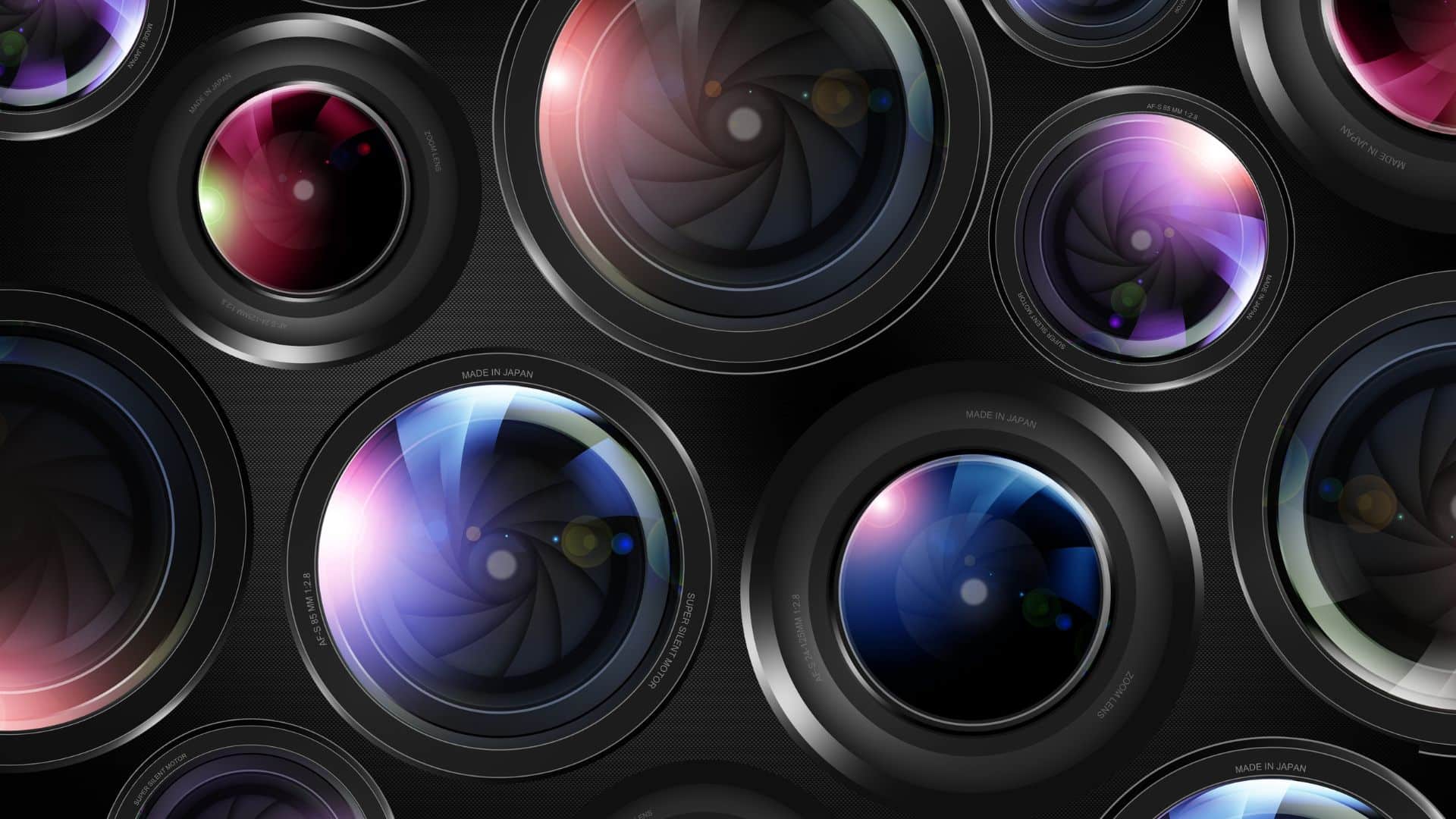Camera lenses are the key component that allows us to capture stunning photographs. Behind each sharp image is a precision optical system incorporating multiple glass elements fitted with specialized lens coatings. These coatings play a vital but often overlooked role in maximizing image quality by reducing reflections at lens surfaces. Without their anti-reflective and protective properties, lenses would struggle to achieve the same levels of clarity and subtle colour rendition. However, lens coatings are not meant to last forever.
Over time and with exposure to environmental factors like heat, moisture and UV light, their optical characteristics will gradually deteriorate. In this article, we will explore the various types of lens coatings used, examine what causes them to degrade, understand typical lifespan expectations and learn how to properly care for coatings to extend their usable lifetime. We aim to shed more light on these unsung heroes of photography and help optimize lens performance for as long as possible.
Understanding Lens Coatings
Lens coatings are thin layers of materials applied to optical lenses to enhance their performance and durability. They serve various purposes, including reducing glare, preventing scratches, improving clarity, and providing UV protection. Anti-reflective coatings reduce reflections and enhance visual clarity, while scratch-resistant coatings help protect against scratches and abrasions. UV coatings block harmful UV rays, safeguarding the eyes from potential damage. Other coatings, such as hydrophobic coatings, repel water and smudges, making lenses easier to clean. Understanding the different types of lens coatings can help individuals choose the right coatings for their specific needs and ensure optimal visual comfort and longevity of their lenses.
Types Of Lens Coatings
There are several types of lens coatings commonly used in the eyewear industry. Some of the most popular ones include:
1. Anti-Reflective Coatings:
- These coatings reduce glare and reflections on the lens surface, improving visual clarity and reducing eye strain.
2. Scratch-Resistant Coatings:
- As the name suggests, these coatings provide a layer of protection against scratches, helping to keep the lenses in better condition for a longer time.
3. UV Coatings:
- UV coatings block harmful ultraviolet (UV) rays from reaching the eyes, providing an additional layer of protection against potential eye damage.
4. Blue Light Coatings:
- Blue light coatings are designed to filter out or reduce the amount of blue light emitted from electronic devices, such as smartphones and computer screens, which can contribute to eye strain and disrupt sleep patterns.
5. Hydrophobic Coatings:
- Hydrophobic coatings repel water and moisture, making the lenses easier to clean and resistant to smudges, fingerprints, and water spots.
6. Mirror Coatings:
- Mirror coatings give lenses a reflective appearance and help to reduce the amount of light entering the eyes, making them ideal for outdoor activities and bright conditions.
7. Photochromic Coatings:
- Photochromic coatings darken in response to UV light, providing automatic tinting and adapting to different lighting conditions.
8. Oleophobic Coatings:
- Oleophobic coatings repel oil and grease, making the lenses resistant to smudges from fingerprints, facial oils, and other contaminants.
Factors Affecting Lens Coating Lifespan
Several factors influence how long lens coatings last. Understanding these factors can help users make informed decisions about caring for their lenses. Here are some key factors to consider:
1. Quality of Coating: The quality of the coating applied to the lenses is a significant determinant of its lifespan. Higher-quality coatings tend to be more durable and provide longer-lasting protection.
2. Lens Material: Different lens materials, such as glass or various types of plastics, can affect the durability of the coatings. Some materials may be more prone to scratches or chemical damage, which can impact the lifespan of the coatings.
3. Handling and Cleaning: The way lenses are handled and cleaned can significantly impact the longevity of the coatings. Harsh cleaning methods, using abrasive materials or chemicals not recommended by the manufacturer, can lead to premature degradation of the coatings.
4. Environmental Factors: Environmental conditions, such as exposure to extreme temperatures, humidity, or chemicals, can affect the lifespan of lens coatings. Prolonged exposure to these conditions may cause the coatings to deteriorate more quickly.
Signs of Coating Deterioration
Although lens coatings are designed to be durable, they will eventually show signs of wear and tear over time. Here are some common signs of coating deterioration:
1. Scratches:
- If scratches become noticeable on the lens surface, it suggests that the protective coating has worn off, and the lens is now vulnerable to further damage.
2. Peeling or Flaking:
- Coatings that begin to peel or flake off indicate that they have reached the end of their lifespan. This can compromise the visual performance of the lenses and necessitate recoating or lens replacement.
3. Reduced Performance:
- Lens coatings are intended to improve visual acuity and comfort. If you start experiencing increased glare, reduced clarity, or difficulty cleaning the lenses, it could be a sign that the coatings are deteriorating.
Extending the Lifespan
While lens coatings will eventually wear off, proper care and maintenance can significantly extend their lifespan. Here are some tips to help you get the most out of them:
1. Gentle Cleaning:
Clean your lenses regularly using a microfiber cloth or a lens cleaning solution recommended by the lens manufacturer. Avoid using tissues, paper towels, or other abrasive materials that can scratch the coatings.
2. Proper Storage:
When not in use, store your glasses in a protective case to minimize exposure to dust, dirt, and potential physical damage.
3. Avoid Extreme Conditions:
Avoid exposing your lenses to extreme temperatures, high humidity, or chemicals that can degrade the coatings. For example, avoid leaving your sunglasses inside a hot car or using harsh cleaning agents.
4. Handle with Care:
Handle your glasses with clean hands and avoid touching the lens surfaces directly. Fingerprints and oils can accumulate and degrade the coatings over time.
5. Professional Maintenance:
Regularly visit an optician or eyewear professional for lens inspections and cleanings. They can detect early signs of coating deterioration and provide appropriate recommendations.
Lens Coating Restoration Services
If coatings do need refreshing before a lens is retired, professional recoating treatments are generally an affordable and effective option for restoring lenses to “like new” optical conditions. Here’s an overview:
- Level 1 Coatings: Basic single-layer anti-reflective coatings start around $100-250 depending on the lens.
- Level 2 Coatings: Advanced multi-layer optimized coatings including flare reduction cost $250-500 typically.
- Element Replacement: If elements are badly damaged, replacement during recoating may run $500-1000+ for a complex zoom lens.
- Turnaround Times: Most repairs take 1-3 weeks though specialized services offering 24-72 hour rates exist too.
- Warranty: Expect a 1-year warranty on coating adhesion and optical performance after restoration by reputable pros.
Conclusion: How long do lens coatings last?
In conclusion, lens coatings may seem like an underappreciated behind-the-scenes component, but as we have seen, they play a critical role in maximizing image quality and sharpness. While coatings are designed to last several years on average with careful handling and proper cleaning habits, continued exposure over time to environmental elements like heat, humidity and sunlight will eventually cause their properties to degrade. Fortunately, professional lens recoating services provide an affordable option to like-new restore performance before a lens retires. By understanding the factors that impact coating longevity and implementing best practices, photographers can effectively prolong the usable lifespan of their investment in optics. With periodic maintenance checkups and timely recoating treatments as needed, lenses contain decades of picture-taking potential.
FAQs
1. How often should I clean my lenses?
- Generally, it’s recommended to clean lenses with coatings daily or as needed to remove smudges and dirt.
2. Can lens coatings be reapplied if they wear off?
- In most cases, they cannot be reapplied once they wear off. It’s usually necessary to replace the lenses.
3. Are lens coatings scratch-proof?
- While lens coatings can provide scratch resistance, they are not completely scratch-proof. Proper care is still important to prevent scratches.
4. Can lens coatings protect against UV rays?
- Yes, certain lens coatings, such as UV coatings, can protect against harmful ultraviolet (UV) rays.
5. How long do lens coatings typically last?
- The lifespan of lens coatings can vary depending on factors like quality, handling, and environmental conditions, but they generally last several years with proper care.

